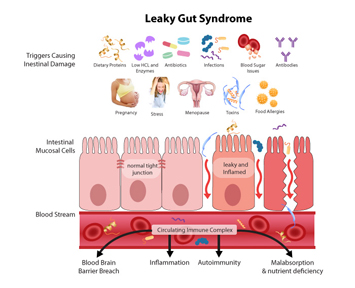Why all this talk about gut?

I realize that it may seem strange to dedicate a decent amount of this blog to my son’s gut issues. So I thought it might be helpful to provide some more resources and context regarding why I have taken this route and spent so much time mentioning my son’s gut over the past year. All the therapies are crucial and I would never suggest just focusing on your child’s gut if they have neurological problems; however, I think it is crucial to consider and explore if your child also has digestive issues, as well. For CB, he had chronic loose stools since he was a baby and through blood work,it was identified that he had numerous vitamin deficiencies, selective IgA deficiency, and borderline iron anemia despite eating balanced, healthy meals. I knew I wanted to help CB’s issues in the most natural way possible. Through diet changes and supplements, the selective IgA deficiency down-graded to low IgA so it no longer classified as an autoimmune condition, all vitamin and iron levels were within the normal range, and his stools were normal most of the time. I’ve noted throughout my blog the specifics but some only took a couple of months to change while others took about a year. In this same time frame, CB has made tremendous jumps with his speech, social interactions, core strength, attention, coordination, appropriate play, and become potty-trained. I believe that my son’s blood work came back with so many issues b/c he had a leaky gut.
What is a Leaky Gut?
The practitioners at SCD Lifestyle provide a good explanation:
“The term Leaky Gut Syndrome is used to describe the condition of “Hyperpermeable Intestines,” a fancy medical term that means the intestinal lining has became more porous, with more holes developing that are larger in size and the screening out process is no longer functioning properly. The fallout results in larger, undigested food molecules and other “bad stuff” (yeast, toxins, and all other forms of waste) that your body normally doesn’t allow through, to flow freely into your bloodstream.
So now that we have the general essentially meaningless definition out of the way let’s find out what is really going on…
The intestinal lining is the first mechanism of defense for our immune system. The outer layers of intestinal cells (epithelial) are connected by structures called tight junctions. At the tips of these cells are the microvilli, which absorb properly digested nutrients and transport them through the epithelial cell and into the bloodstream. During the normal digestion process the tight junctions stay closed forcing all molecules to effectively be screened and only pass into the blood stream through the mucosa cells (think of them like bouncers at the front of a classy bar). For reasons we will discuss later, these tight junctions can become “open” or permeable allowing un-screened molecules to flow directly into the bloodstream (think of it like a fish net with very small holes).”
By making the dietary changes, this has allowed my son’s intestinal wall to heal or mostly heal. What I don’t know at this point is 1) Can CB eat gluten again? 2) If so, do we need to limit it? 3) Or will he need to remain gluten-free his whole life? 4) Will the soy allergy go away? 5) By healing the gut, can it remain healed? 6) Even though we are not seeing any issues with slowly introducing dairy, are there internal problems forming that we can’t see? (more…)
December 31, 2015 Allergy, Diet, & Supplements 0 Read more >